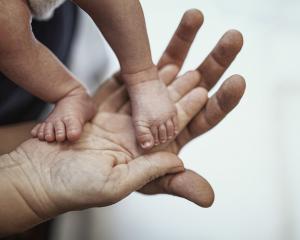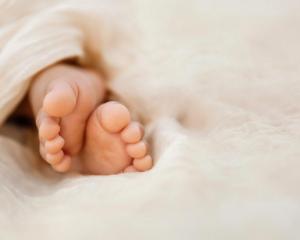
Lai was sworn in at the Japanese-colonial-era presidential office in central Taipei, taking over from Tsai Ing-wen, having served as her vice president for the past four years.
Lai will express goodwill towards China in his inauguration speech and call for both sides of the Taiwan Strait to pursue peace, according to a senior official briefed on the matter.
Lai wore a purple tie, representing a butterfly native to Taiwan, and a yellow pin on his lapel of mustard flowers, a common plant in fields across the island.
He received two seals symbolising his presidential power from the parliament speaker, the seal of Republic of China and the seal of honour, both brought to Taiwan after the Republican government fled to Taiwan in 1949 after losing the Chinese civil war to Mao Zedong's Communists.
Beijing views proudly democratic Taiwan as its own territory, and has never renounced the use of force to bring the island under its control. Lai has offered talks, which have been rebuffed, and says only Taiwan's people can decide their future.
Taiwan has faced ongoing pressure from China, including regular air force and navy activities close to the island, since January's election victory by Lai, who is 64 and widely known by his English name, William.
Taiwan's defence ministry, in its daily report on Monday about Chinese military activities in the previous 24 hours, said six Chinese aircraft had crossed the Taiwan Strait's median line, which previously served as an unofficial boundary but that China says it does not recognise.
At least one of the aircraft got within 43 nautical miles (80km) of the northern Taiwanese port city of Keelung, according to a map provided by the ministry.
In attendance at the ceremony are former United States officials dispatched by President Joe Biden, lawmakers from countries including Japan, Germany and Canada, and leaders from some of the 12 countries that still maintain formal diplomatic ties with Taiwan, such as Paraguay President Santiago Pena.
Last week, China's Taiwan Affairs Office said Lai, whom it called the "Taiwan region's new leader" had to make a clear choice between peaceful development or confrontation.
Chinese state media did not immediately report on Lai's swearing in.
Late on Sunday, widely read state-backed Chinese newspaper the Global Times said Lai could become "more and more provocative" once he takes office.
"So in the long term, the state of cross-straits relations will not be optimistic," it said in an online commentary.
Lai's domestic challenges loom large too, given his Democratic Progressive Party lost its parliamentary majority in the January election.
On Friday, lawmakers punched, shoved and screamed at each other in a bitter dispute over parliamentary reforms the opposition is pushing. There could be more fighting on Tuesday when lawmakers resume their discussions.











